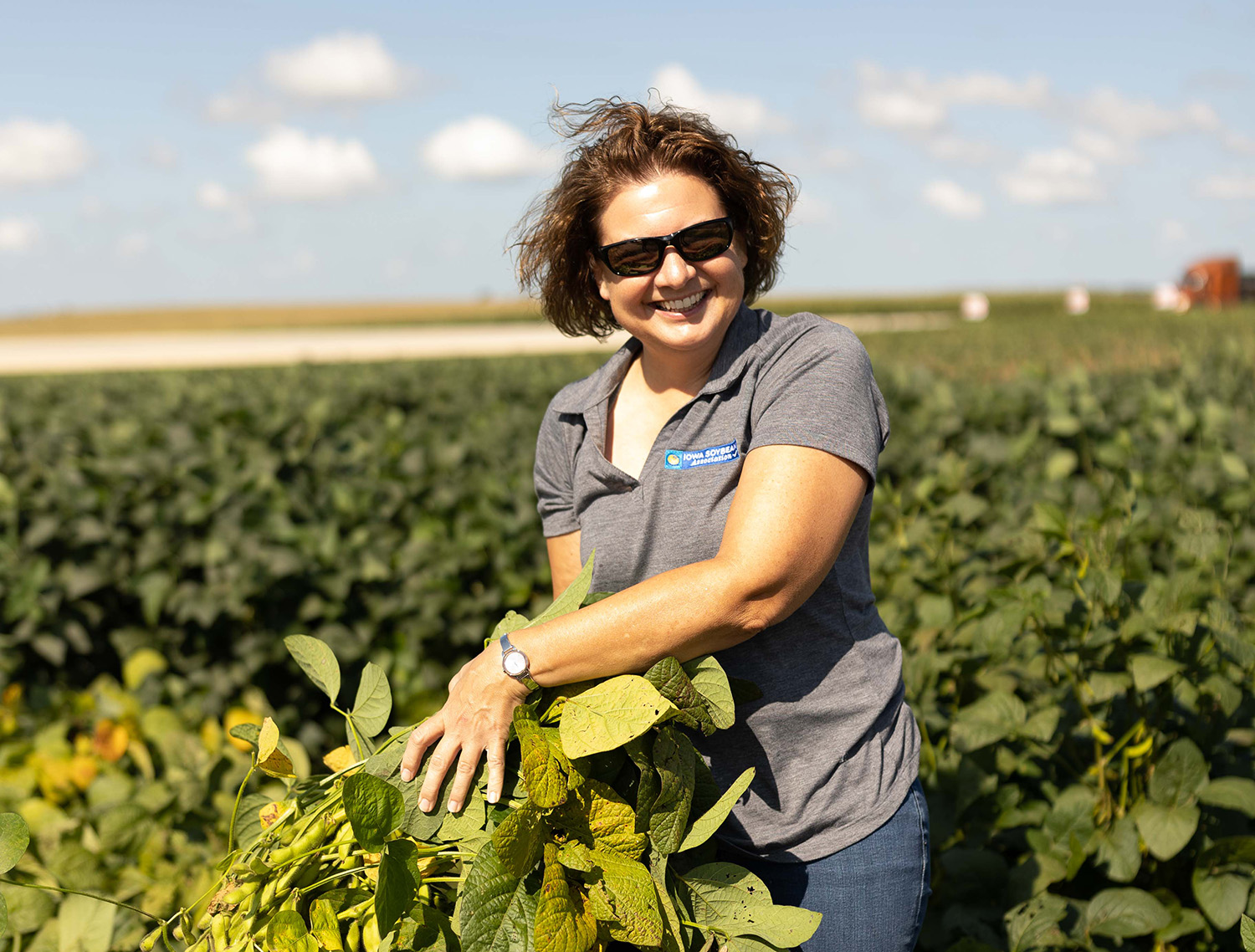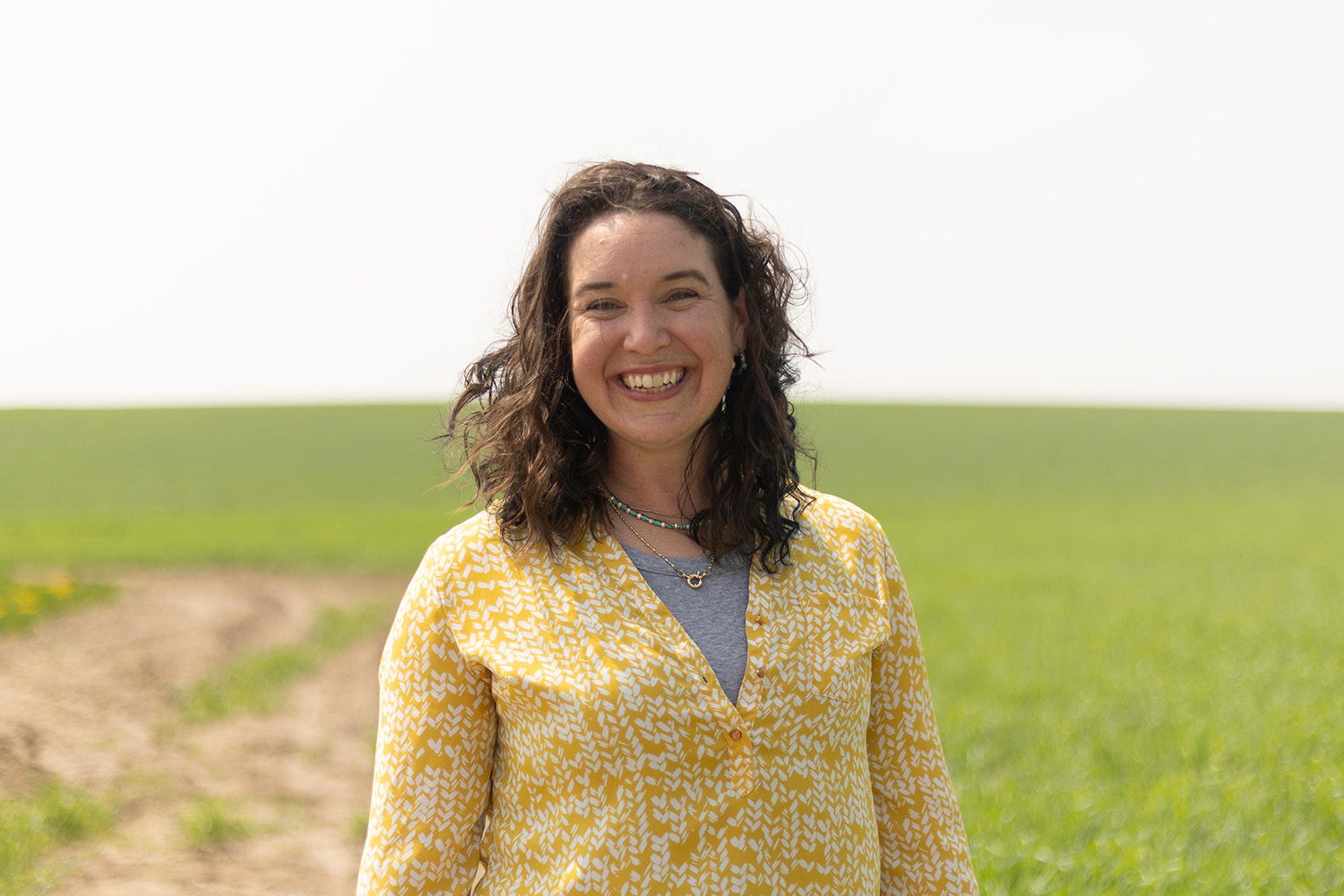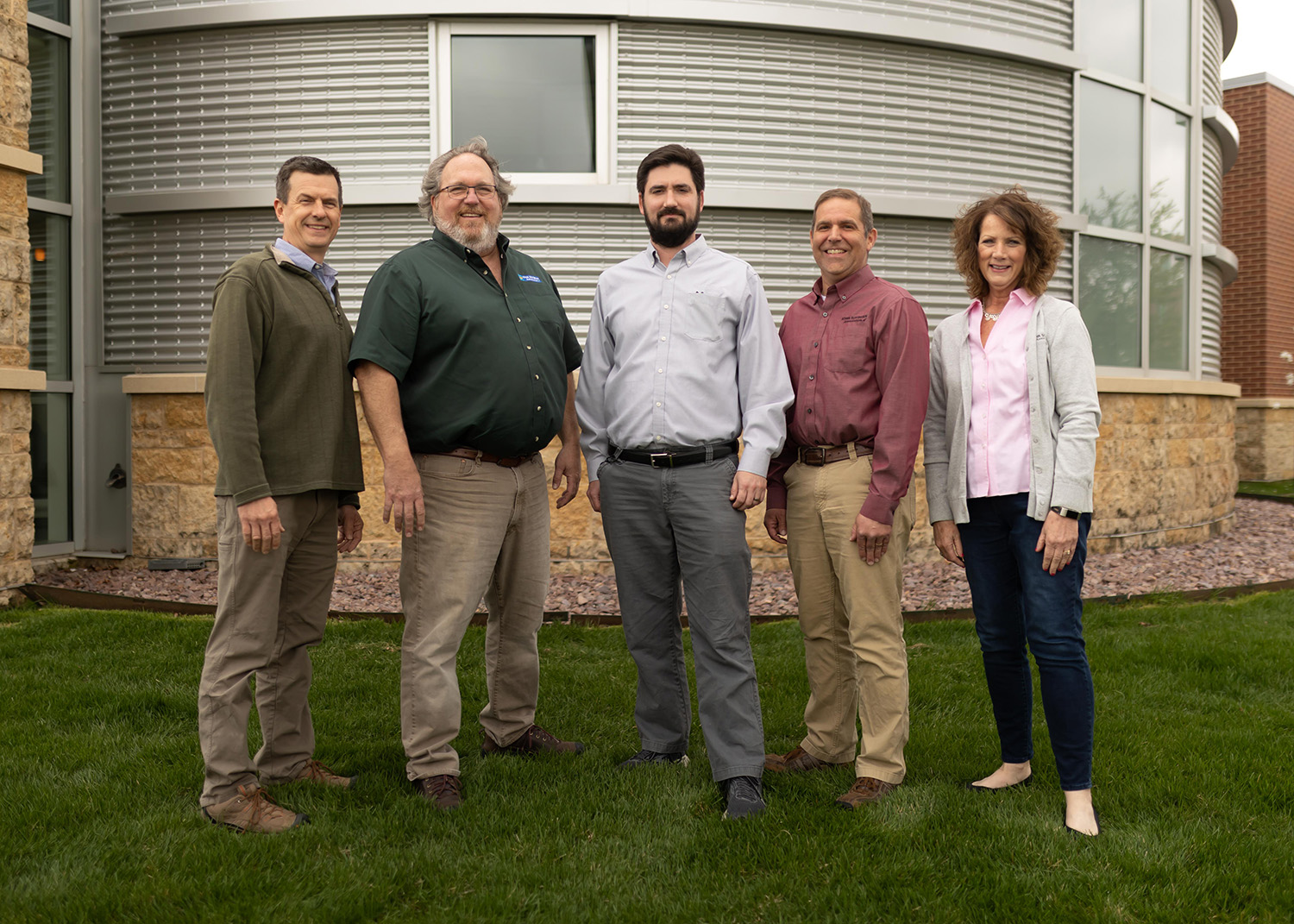
(Photo: Joclyn Bushman/Iowa Soybean Association)
A better future grows from Iowa's Front 40
July 1, 2022
Who is working to ensure a better, brighter future? Iowa’s farmers. Iowa’s Front 40 launched in December 2021, highlighting 40 champions from across the state who are at the forefront of sustainable soil and water management practices. Created by the Iowa Soybean Association (ISA) Research Center for Farming Innovation (RCFI) and supported by the Walton Family Foundation, the movement began in 2021 with a series of eight Grassroots Leadership Forums, with ISA staff gathering around the table with Iowa farmers.
“We believe in engaging Iowa farmers first and foremost,” ISA RCFI Director Roger Wolf says. “We’re all about improving the productivity, profitability and natural resource management for soil and water in Iowa.”
Wolf says the Front 40 is a way to elevate the voices of local farmers while learning about Iowa’s soil and water conservation success stories, which are already under way. The RCFI director says the program is focused on opening the dialogue among Iowans about conservation. When farmers make changes to their operations to improve the health of the soil, it comes with real work and a real cost.
“We advocate for a shared investment, both public and private; that’s what it will take if we’re going to realize the big goals the state has for improved water quality and long term soil health,” Wolf says. “RCFI will continue to invest in these kinds of programs, and we believe the voice of local people and the actions of local people is what makes the programs work. We’re learning about this as we talk to people across the state. We want to capture more of this momentum and build a better future for Iowa.”
Champions
The 2021 class of Front 40 champions each exemplify being a good steward of the land in their own way. They have as many similarities as differences. Todd Sutphin, the RCFI senior research program manager who dutifully took notes during the 2021 Front 40 forums, hinted at what defines a Front 40 champion.
“I think a champion is more than a voice; a champion often takes action,” says Sutphin.
Conservation is a tradition for many Front 40 champions, including Suzanne Shirbroun, a sixth-generation farmer whose family farm is home to the oldest terrace in Clayton County. To her, the Front 40 showcases positive efforts throughout the state.
“The Front 40 is a great avenue for our consumers to learn more about what farmers are doing to protect our land and farms,” Shirbroun says.
Lydia Whitman, a Front 40 champion and sixth-generation farmer from eastern Iowa, says the Front 40’s efforts to elevate different voices in agriculture is significant. It’s not just farmers on the same ground with the same training, but rather a diverse group of people with different backgrounds and experiences.

“I like the Front 40 because we’re celebrating the good because of what is happening on the farm,” Whitman says. “Also, continuing a conversation in such a way that we can continue to synergize on the good that’s happening vs. create consequences for those who aren’t early adopters. It’s also identifying leaders. To acknowledge how the process of eclectic knowledge and engagement turns into these outcomes is cool.”
She adds, “There are many ways to solve problems, and we shouldn’t discount what is possible. The way I farm on my ground isn’t the same as my friends in central Iowa. We don’t have the same soil types or hydrology; we have different weather patterns. What we can do is different, and that’s okay.”
Conservation Conversation
The Front 40’s grassroots approach is informing the future of RCFI too. Wolf identified three areas RCFI is considering investing in based on feedback received during the first series of Grassroots Leadership Forums in 2021.
Water and watershed projects
“Watershed projects hold a lot of promise for organizing efforts to improve soil health and water quality downstream,” Wolf says. “Some of the common features of good watershed projects include broad stakeholder support upstream among the ag community and active engagement with downstream and often urban stakeholder interests.”
Having solid information and assessments of the current condition and building a plan for shovel-ready projects has been a key to securing additional resources. While there are some good examples demonstrating practices and information on how this work occurs, local watersheds lack the necessary resources to take projects to full-scale implementation, Wolf says.
“Having local boots on the ground is also key for success,” he says. “Without additional financial investment, however, many acres go untreated, and opportunities to move the needle for downstream outcomes are being missed.”
Finding opportunities to engage young farmers
Integrating crop and livestock systems holds promise for young farmers, the RCFI director says.
During the forums, local leaders shared barriers to incorporating cover crops into cropping systems. Namely, increasing infrastructure for seed production, planting and termination services.
“Increasing the bandwidth in these areas may mean more opportunities for people looking to get into agriculture,” he says.
Leveraging current project work
Wolf said RCFI will take the information and experiences from farmers and others participating in the Grassroots Leadership Forums to explore and expand projects.
“We hope to advance projects that take dedicated small-scale soil health research plots and extend them to whole field experimental evaluations to study real-world response,” Wolf says. “We then can create a support network providing extension and outreach to farmers and opportunities to change practices on their operations.”
The RCFI director explained the end goal is providing opportunities for Iowa farmers.
“This is a research-based approach to refining cropping systems and takes a fair amount of coordination and commitment to adhering to an experimental design, coordinating data collection, and using data analytics to uncover information and insights into valuable opportunities for farmers.”

The next 40
The efforts of the 2021 Front 40 champions are continuing into 2022 as they help to shine a light and identify more of Iowa’s conservation leaders. Six Grassroots Leadership Forums are planned for this year, which will include great conversation and an opportunity to learn in person.
Whitman, one of the inaugural champions, says it’s an aspect of the Front 40 she hopes will grow as the movement gains momentum.
“There’s a demand for witnessing demonstration projects,” Whitman says. “These folks are great communicators and able to put forward what they’re doing. Suppose we’ve got this opportunity to hop on that a little farther and highlight an existing practice, even take it a step farther in developing the demonstration of a new practice that has lower adoption typically due to awareness. Can we connect the dots and start to help expand knowledge of how to even do more? Do better?”
Back